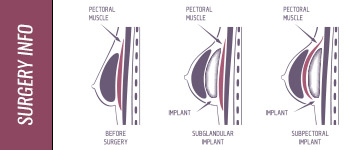Those of us who travel for cosmetic surgery leisure and convenience now have some guidelines to facilitate the process and help ensure a safer experience. The International Society of Aesthetic Plastic Surgery (ISAPS), which represents about 1,500 of the world’s best plastic surgeons released these new guidelines on their new website. The guidelines were in development for nearly a year up to their release, and reflect growing consumer trends and inquiries made by customers, medical professionals, and governmental organizations.
These guidelines, paraphrased, are as follows:
- Know the surgeon’s training. You want your surgeon to be specifically trained for the procedure you’re about to undertake.
- Get a certified plastic surgeon. This condition cannot be stressed enough. Your safety must be placed in the hands of professionals, not cheap amateurs.
- Know who certified your plastic surgeon. There are different levels of prestige in different organizations, and knowing the full background is to your benefit.
- Know if the surgery center is certified.
- Check with your health insurance for coverage outside your own country. Consider getting extra coverage if there is a problem with your current insurance coverage.
- Make sure the location is ideal for a lengthened stay. You’ll need time to heal, usually at least a week. Check with the facility for their post operation treatments.
- Have a backup plan at home. Know a surgeon that will take care of you “in case” you have complications when you arrive in your home town. How will you pay for secondary procedures, if need be?
- Make sure the people running the organization you’re interested in speak your language fluently. Many problems can arise from a lack in communication in foreign countries.
- Who are you talking to? Make sure the deal is not made through some staff member’s secretary. Talk only to the doctor and his direct staff. Do not let your travel agent make your cosmetic procedure arrangements.
- Check to see if your surgeon is a member of recognized national and international societies.
- Check for references. Get names and contact information of patients who have recently had a similar procedure, and talk to them about their experience.





Leave a Reply